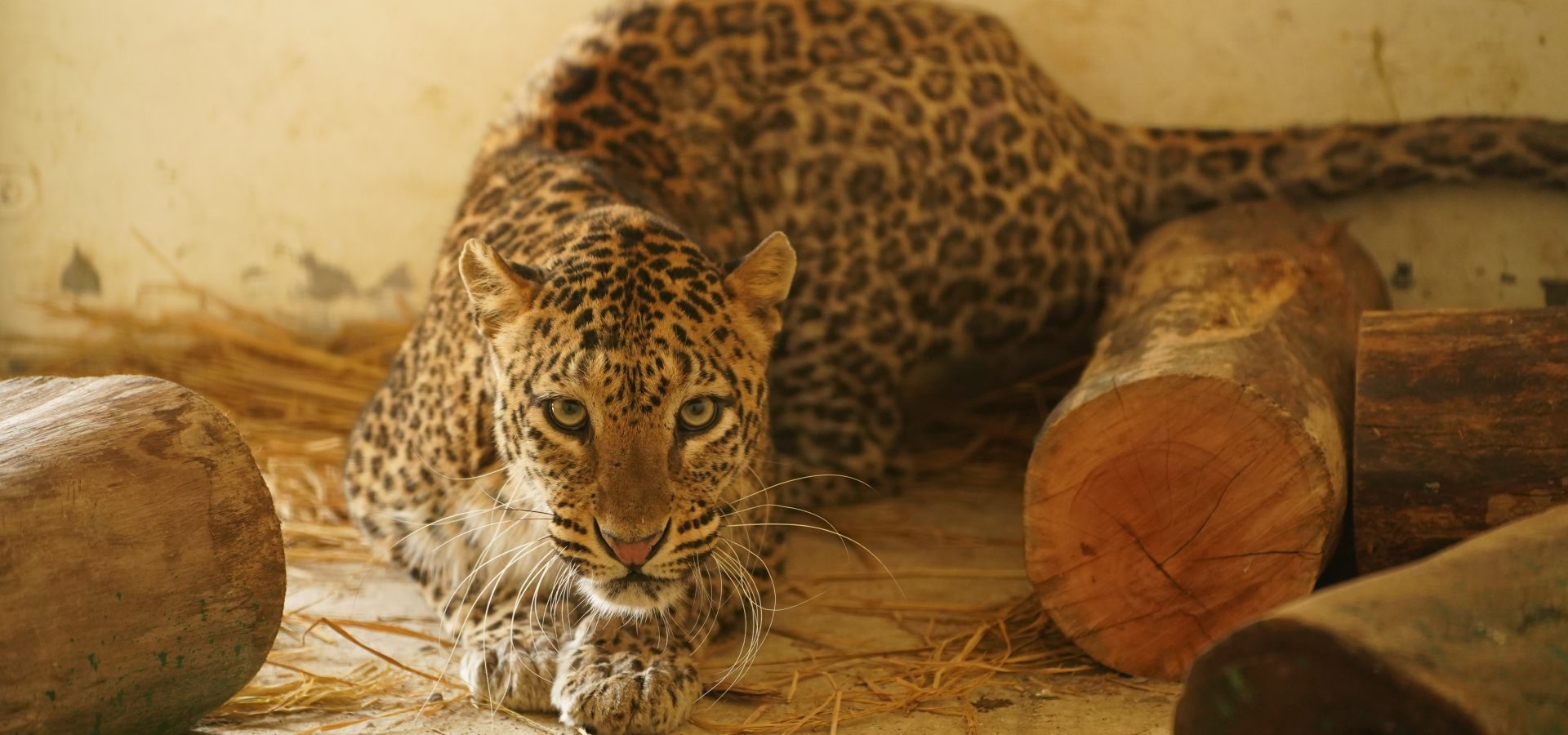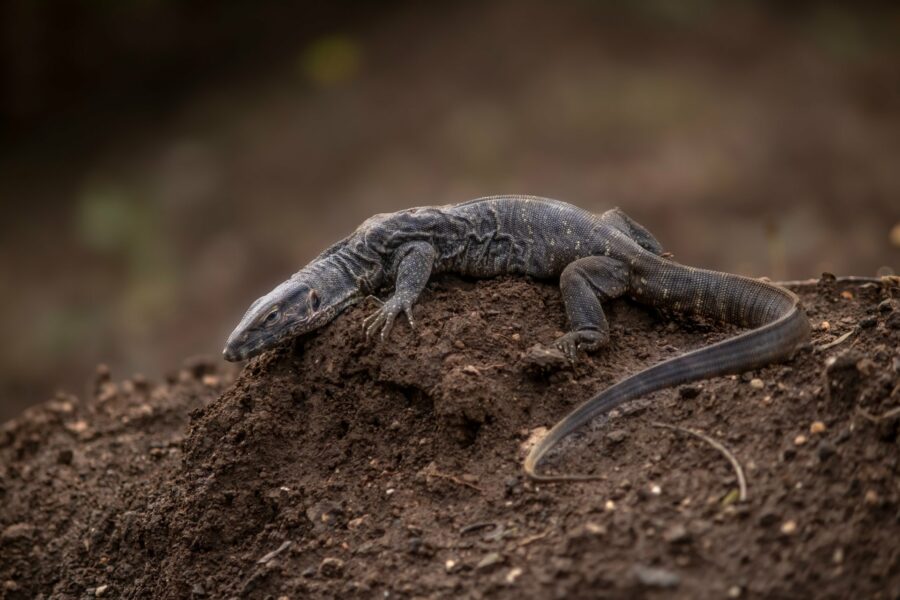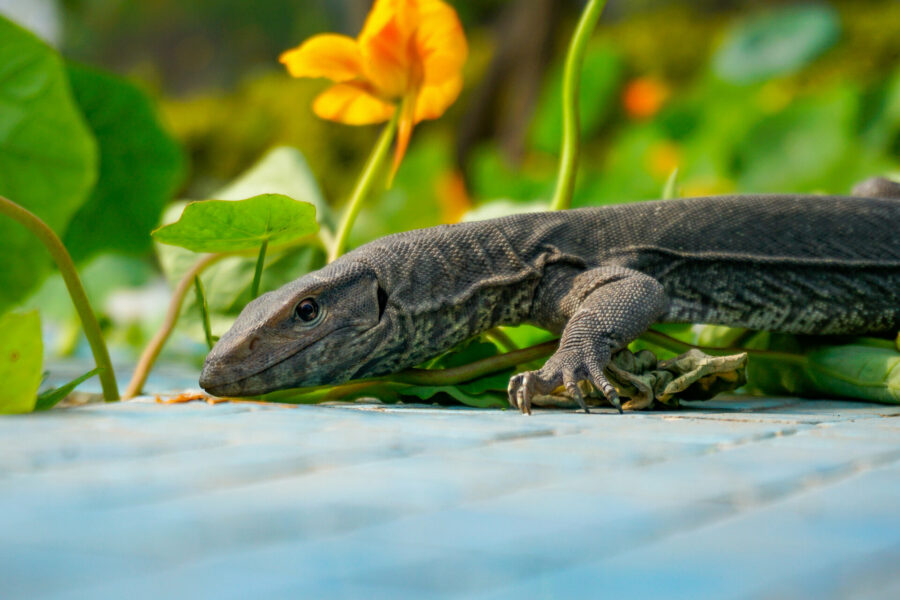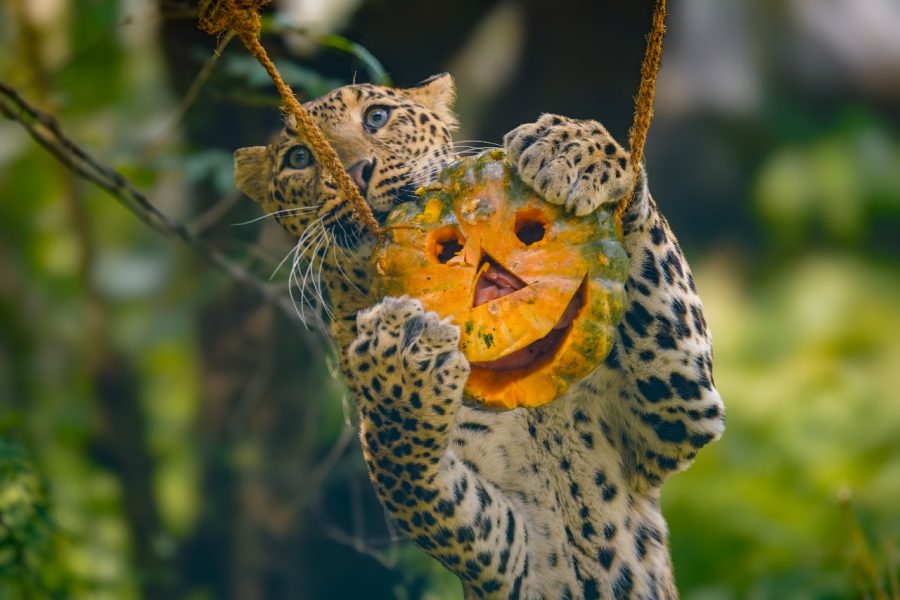In the serene wilderness of Niphad, nestled in the heart of Maharashtra’s Nashik district, an unfortunate incident of yet another human-wildlife conflict unfolded. A nine-year-old female leopard met with a ghastly road accident on a fateful day in November 2023. She came to us in a dire state, completely unresponsive to stimulus. The evolution of her condition, from complete incapacity and paralysis to her current state, reflects the unwavering dedication and hard work of our staff.
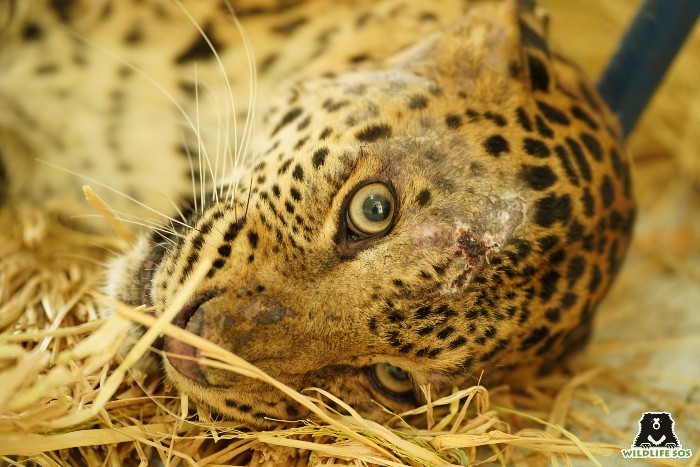
Her miraculous survival is also owed to the timely intervention by the Maharashtra Forest Department, which ensured that the leopard was brought under the urgent medical attention of Wildlife SOS.
This leopard is yet another victim of rampant infrastructural activities that are leading to fragmentation of wildlife habitats. Under the warm and vigilant care of our team at the Manikdoh Leopard Rescue Centre (MLRC), the feline, now named Alpana, is showing a mighty will to recover.
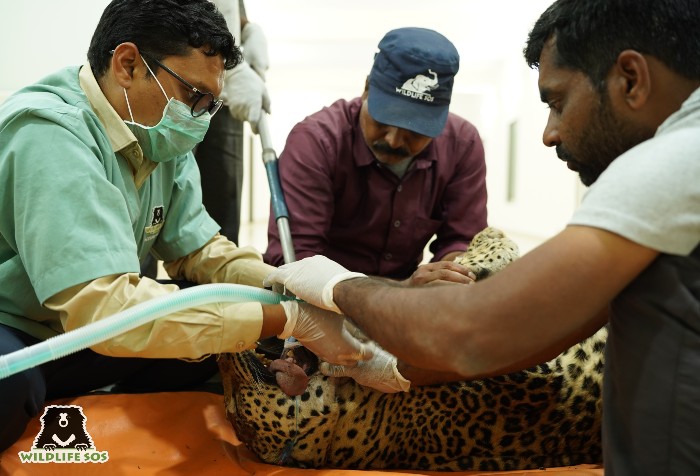
A Struggle for Survival
Alpana’s accident left her with severe injuries across her body. When she first arrived at MLRC, the primary concern was to ensure her survival. Vets believed her prognosis was grave, given the profuse bleeding from her vagina and signs of severe respiratory distress. The extent of blood loss raised doubts about her chances of making it through. A suspected spinal trauma had immobilised her, demanding extensive medical treatment for her recovery. Despite a successful operation, the leopard remained in a state of lateral recumbency.
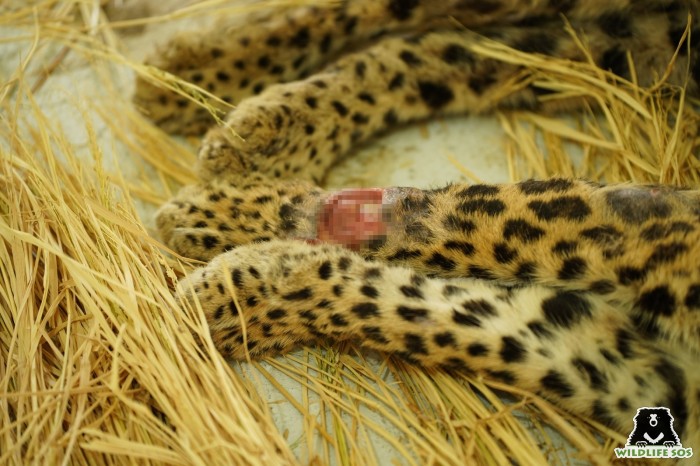
Our dedicated staff initiated a comprehensive care plan, providing Alpana with daily physiotherapy massages on her limbs and back to stimulate her recovery. Laser therapy, an innovative and non-invasive treatment, was employed to encourage limb movement and stimulate the repair of damaged cells. The specialised machine allowed targeted laser radiations over areas of injuries, swelling, or pain. Additionally, nervine tonic was administered to aid in nerve healing. Although progress was slow, our team persisted with these treatments in the hope of her improvement.
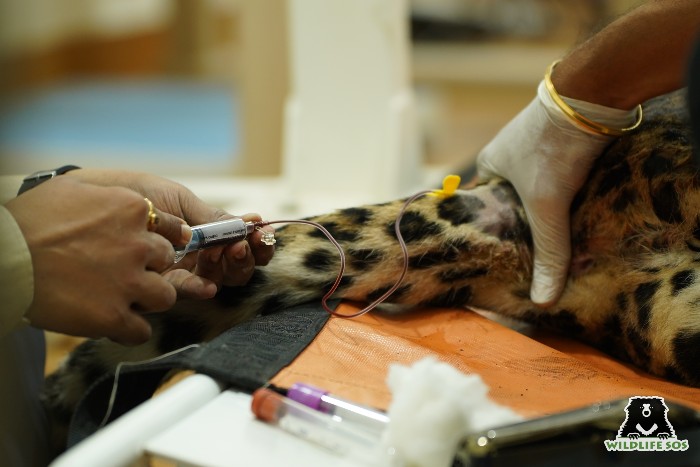
Gradually, the leopard displayed remarkable progress, prompting the introduction of oral medications through her feed. These medications aim to restore her limb movements, enhance gut health, promote nerve healing, and revive her once-lustrous body coat. Ongoing diagnostics are being conducted to monitor her healing progress. Alpana hasn’t regained her prime state yet, and she shows an imbalance while walking. To determine and address the exact trauma affecting her body or brain, further tests will be duly conducted.
Alpana’s Triumph and the Call for Conservation
As a living example of incredible resilience, Alpana has been responding well to each of her treatments. The leopard is now able to stand and navigate her way around the ward she is in, with the external support of a wall. The caregivers have extended her sanctuary with an outdoor enclosure, allowing her to embrace the natural surroundings. Yet, she instinctively retreats to her ward upon hearing humans nearby.
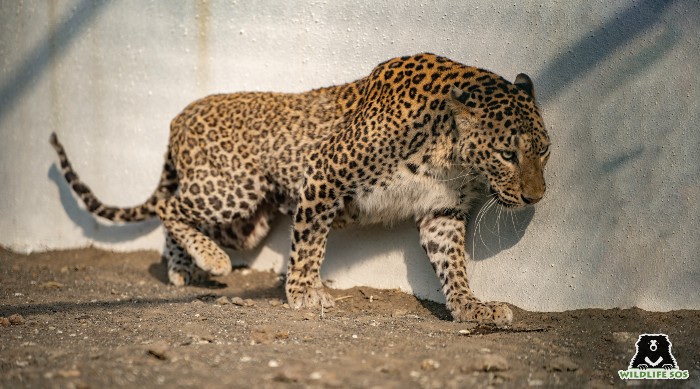
Alpana’s story reveals the consequences of habitat fragmentation and human intrusion into wild territories. Increasing fragmentation of natural homes poses significant threats to wildlife, and is one of the main reasons behind unexpected road accidents. Collective action by citizens and authorities is imperative to create a world where humans and animals can coexist peacefully.
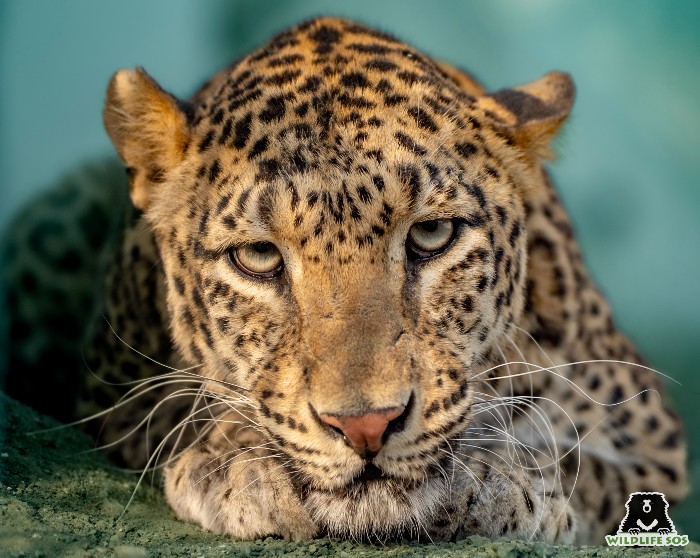
Wildlife SOS has consistently addressed intricate health issues of animals rescued from adversities. This has been possible due to our steady coordination with the forest department, well-equipped facilities, skilled veterinarians, and dedicated caregiving staff. However, sustaining these efforts is a resource-intensive endeavour, for which ongoing financial support is important. If you’re passionate about wildlife and want to support our vital work in treating animals in need, we invite you to consider becoming a monthly donor for Wildlife SOS. Your support can make a significant difference in our ability to care for and rehabilitate animals in distress.

